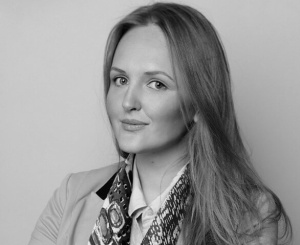MiFID II: What you need to know right now, in full HD
By Neria Konrad, Co-Founder & CEO, TradingHD Earlier last week the European Securities and Markets Authority (ESMA) announced long-awaited update to Markets in Financial Instruments Directive (MiFID II). These capital market reforms, 28 new rules in total, will substantially affect bond markets, anonymous shares trading and commodity holdings. ESMA aims to create more transparent and […]

By Neria Konrad, Co-Founder & CEO, TradingHD
Earlier last week the European Securities and Markets Authority (ESMA) announced long-awaited update to Markets in Financial Instruments Directive (MiFID II). These capital market reforms, 28 new rules in total, will substantially affect bond markets, anonymous shares trading and commodity holdings. ESMA aims to create more transparent and safer financial system across EU, with MiFID II being its key post-financial crisis measure. MiFID will provide stronger investor protection by strengthening conduct of business rules.
The changes include capital requirement directive (CRD IV) that aims to decrease systemic risks across equity, fixed income and commodity markets. January 3rd, 2017 will be the first trading day with these changes in place.
What’s changing?
Probably the most important change from earlier MiFID version is the cap on the number of commodity derivatives, ranging from 5 to 35 per cent. Under the new rules, if a company has more than 10 per cent speculative commodity trading as part of its total trading activity, it will have to comply to capital and liquidity requirements.
MiFID also requires larger capital to back trades in these cases. Steven Maijoor, ESMA’s chairman, told Financial Times that “once you go into speculative trading you are competing with investment banks and there should be a level playing field; you will be caught by the rules”. Indeed, the regulations will be similar to the ones applied to the financial services industry. While there will be some exemptions, all non-financial companies with more that 10 per cent of their total trading in derivatives will be required to get a license.
Other changes include greater control of bond trading. At the moment, only equities are required to publish bid and offer prices, but after the changes take effect, the same information will be required to be published for sufficiently liquid bonds. According to ESMA, bond-liquidity will be assessed on single case basis, instead of grouping bonds into broad classes.
“ESMA’s reform will also have a great effect on dark pools, private trading forums that allows big investors to block trade, without impacting markets with large trades” – Neria Konrad, CEO, TradingHD
ESMA’s reform will also have a great effect on dark pools, private trading forums that allows big investors to block trade, without impacting markets with large trades. Under MiFID II, there will be caps on time and volume of dark pool trades. So-called double volume cap mechanism (4% per venue cap and 8% global cap) will put limits on the use of reference price waver and negotiated price waver. Exceeding these caps, means that companies will be banned from the stock on any dark pool for six months.
MiFID II as unnecessary controls
While the review of legislation has received mixed reviews, many traders are afraid of extra costs that might occur due to aforementioned changes. Earlier in the year Trafigura, one of the world’s biggest trading houses, released a report by Craig Pirrong, professor at University of Houston, stating that commodity trading houses do not pose the same systematic risks as banks do.
Subjecting trading houses to CRD IV, claimed the research, “would produce no material reduction in systemic risk, but would increase the costs of commodity trading, to the detriment not just of trading firms, but of the producers and consumers of commodities.”
While new rules will introduce transparency and greater control to the trading market, some fear that ESMA will have too much power over non-financial companies. As Syed Kamall, MEP for London and a member of the ECON committee stated on City AM that “the regulator could become the policeman of the rulebook rather than its interpreter” and it should “not [be] given discretionary powers over individual firms”.
While these changes do not yet apply and the Commission now has three months to make the final decision on technical standards, the regulations have already went through legal review which means that they will be passed into law.
This editorial was compiled by, and represents the perspective of Neria Konrad, Co-Founder & CEO, TradingHD









